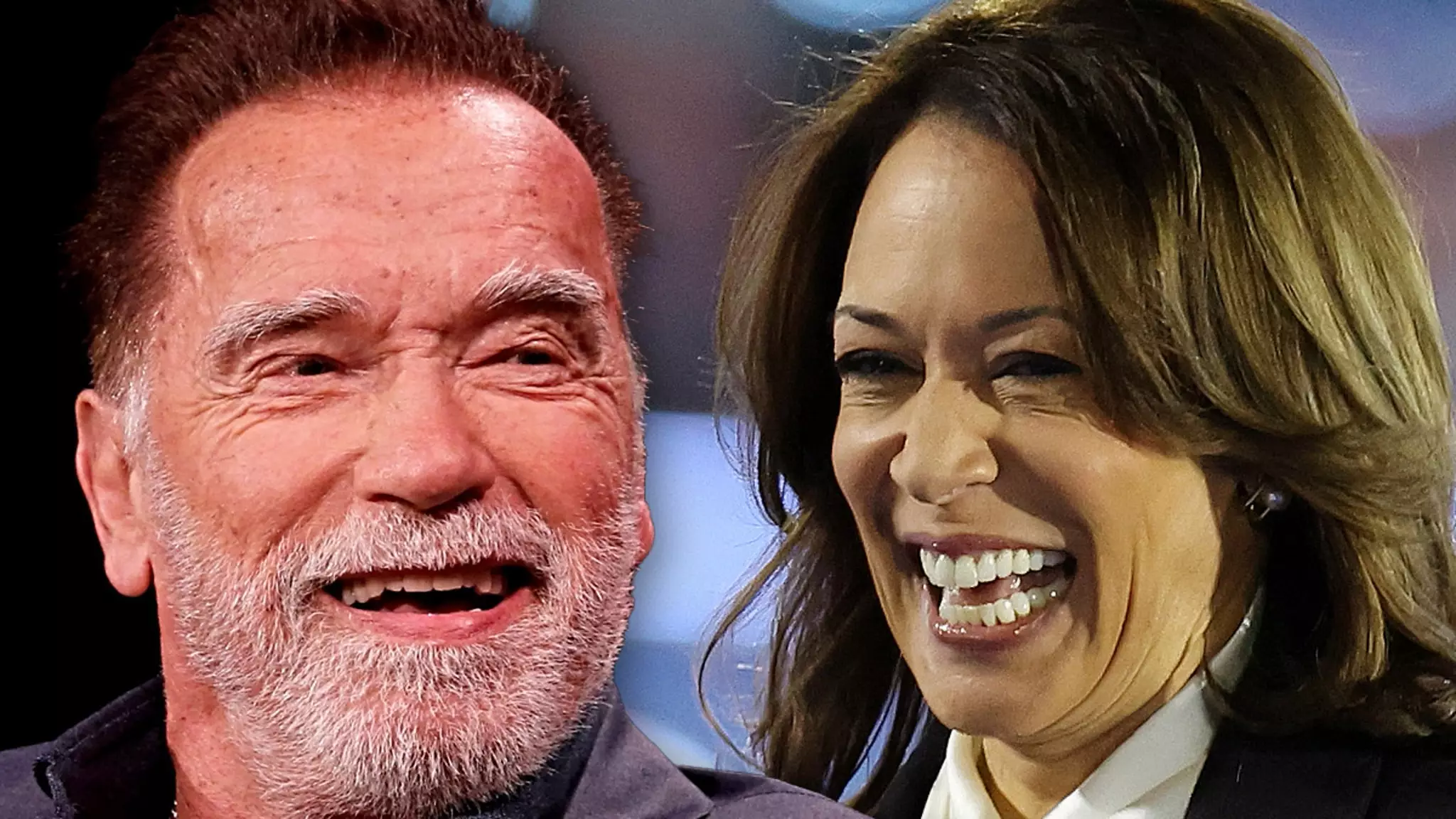In an unprecedented twist, Arnold Schwarzenegger, the former Republican Governor of California, has publicly endorsed Democrat Kamala Harris in the lead-up to a pivotal election. This endorsement marks a significant departure from his political roots, highlighting a growing concern among some conservatives about the ramifications of a second Donald Trump presidency. By breaking ranks, Schwarzenegger not only challenges party lines but also stirs conversations about integrity, nationalism, and the future of American democracy.
Schwarzenegger’s endorsement comes just days before the November 5 election, signaling a sense of urgency. He articulates a profound disillusionment with the current political landscape, expressing disdain for both major parties and an overarching mistrust of politicians. In a letter posted on social media platform X, Schwarzenegger’s tone is strikingly candid as he reveals his concerns about Trump’s potential reelection. He argues that “rejecting the results of an election is as un-American as it gets,” a sentiment that captures the escalating tensions surrounding election integrity in modern America.
Moving beyond mere criticism, the actor draws on his experience as a public figure who has interacted with people worldwide, emphasizing a vision of America as a “shining city on a hill.” His frustration peaks when he discusses the characterization of the United States as a “trash can,” viewing such rhetoric as antithetical to the values of patriotism and unity. This expression of anger provides insight into his motivations: a desire for a more hopeful, unified America rather than one steeped in anger and division.
Schwarzenegger does not shy away from his critique of Trump, explicitly condemning the former president’s actions related to the January 6 insurrection. He portrays Trump as a divisive figure who has vilified those with differing opinions, exacerbating the already polarized political landscape. It’s clear that Schwarzenegger sees Trump’s potential return as a continuation of chaos, resulting in “four more years of bulls***” that fails to address the nation’s pressing issues.
Such commentary highlights an essential theme in Schwarzenegger’s message: the necessity of moving on from a detrimental chapter in American history. He conveys a deep-seated desire for reconciliation and progress, believing that Trump’s leadership would only deepen the divides among Americans. His call for a closure to this turbulent period resonates with others who share similar frustrations, showcasing a growing movement among some Republicans who prioritize national unity over party loyalty.
Signing off with an appeal for civic participation, Schwarzenegger encourages Americans to vote and assert their voice in shaping the future of their country. His endorsement of Harris and running mate Tim Walz is less a celebration of their policies than it is a clarion call against perceived threats to democracy and unity. This endorsement reflects a broader trend among moderates and disenchanted conservatives who recognize the transformative power of elections and the importance of making informed choices for the sake of the nation’s health.
Arnold Schwarzenegger’s unexpected endorsement of Kamala Harris serves as more than just a political statement; it’s a poignant reflection of a divided America yearning for healing and progress. His voice, once a symbol of party allegiance, now challenges conventional political boundaries and resonates with an electorate eager for change.

